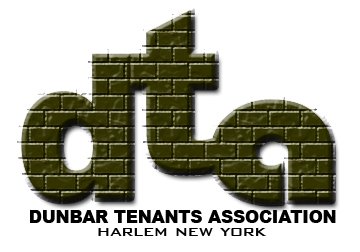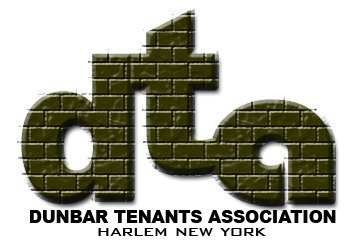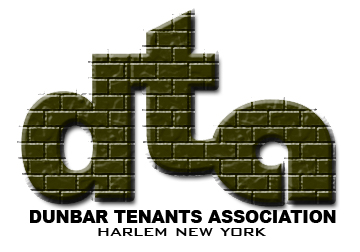By Juan Gonzales NY Daily News
A hundred gallons of paint for a two-bedroom apartment. Five new flushometers for two toilets.
New doors, range hoods and pedestal sinks that were never installed.
These are just some of the renovations that Pinnacle Group LLC claimed to state officials when it sought to justify huge rent increases for several vacant apartments at 706 Riverside Drive, a rent-stabilized building the company owns in west Harlem.
A group of tenants who moved into the renovated units in 2001 later complained to state housing officials and the courts that Pinnacle was illegally overcharging tenants.
The dogged tenants eventually won major rollbacks in their monthly rent from Pinnacle - a big city landlord that has filed 5,000 eviction proceedings since 2004 against tenants who live in its nearly 20,000 apartments.
In the long 706 Riverside Drive legal battle, Pinnacle submitted hundreds of documents to the state Division of Housing and Community Renewal to try to justify charging as much as $2,000 in monthly rent to new tenants in a building where most current residents were paying about $600.
When they saw copies of Pinnacle's invoices, the new tenants said they were astonished to find their landlord had reported tens of thousands of dollars for work that either was never done, was double- or triple-billed or couldn't legally be claimed as rehab work.
"There was blatant fraud and padding of bills," said Mark Gordon, a Web designer who moved into a seventh-floor apartment with his wife, Anne Beaumont.
Pinnacle eventually agreed in Housing Court to reduce Gordon's rent from $1,900 to $1,100 and paid him $10,000 for overcharges. In doing so, the company admitted no wrongdoing.
Pinnacle originally claimed to the state that it spent $47,000 for improvements to Gordon's 1,200-square-foot, two-bedroom apartment, including a new kitchen and bath.
Under state law, a landlord who renovates a rent-stabilized apartment is allowed to increase its monthly rent by one-fortieth of the cost of those improvements. Thus, a $40,000 makeover translates into a $1,000-a-month increase.
But because the law doesn't require landlords to produce evidence of their repairs unless a tenant challenges the new rent, the system is vulnerable to abuse, housing advocates say.
Among the questionable invoices Pinnacle filed with the Division of Housing and Community Renewal for Gordon's apartment:
$1,500 for a new main electrical box. A construction expert hired by Gordon concluded there was no new box.
$1,029 for 100 gallons of latex paint and $454 for 45 gallons of ceramic adhesive. That's enough paint and adhesive for an entire building.
$1,800 for labor to install two new front doors and door handles, installed by contractor Shaban Cecunjanin. There were no new front doors or handles, and Cecunjanin is the building's superintendent.
$490 for 10 pieces of 3/4-inch, 4-foot-by-8-foot plywood and for 20 pieces of 4-foot-by-8-foot Sheetrock. There was no new plywood or Sheetrock installed in the apartment, Gordon's expert said.
Three separate invoices totaling $336 for five toilet flushometers. The apartment has only two bathrooms, and Gordon's expert concluded the existing flushometers showed no signs of recent replacement.
$396 for more than 120 brass nipple pipe fittings; Gordon's expert couldn't find any in the apartment.
$17,800 for two men to install new sinks, toilets and medicine cabinets in the two bathrooms. One of the contractors Pinnacle claimed it paid was Rasim Toscic, who also happens to be Pinnacle's super for other northern Manhattan buildings. The other was Toscic's brother, Rafaet.
A floor below, tenants Ted and Marjorie Charron found the same story with their invoices:
There was one invoice of $3,948 paid to Rasim Tokic (sic) for supplies purchased at Home Depot for rehab work on three apartments, including the Charrons' and Gordon's.
The actual Home Depot receipt that corresponded to the invoice revealed a few curious items, such as $169 for 240 light bulbs - 80 per apartment.
There was another invoice for the shipment on June 27, 2001, of 30 gallons of paint for the Charrons' apartment. Problem was, they had moved into their new apartment on June 5.
Other Charron invoices were for a new 30-inch range hood and a new pedestal. None was ever installed.
Most comical of all was Pinnacle's Houdini-like use of the invoice that included Gordon's 100 gallons of paint.
The total amount of that invoice was for $1,920. In addition to the paint, it included a bunch of supplies that Pinnacle claimed it used renovating other apartments in the building.
But in the documents it filed with the state, Pinnacle charged $1,200 from that invoice to the Charrons' apartment, $1,456 to Gordon's and $1,724 to tenant Don Gilmore on the eighth floor. Thus, $1,920 in supplies was magically transformed into $5,100 in charges.
All of these "costs" were used by Pinnacle to justify sharp increases to the rents of all the vacant apartments.
Asked about the fraud charges from the tenants of 706 Riverside, company spokesman Robert Barletta said Friday in a prepared statement: "Pinnacle believes that work [full renovations] and invoices were proper." In some cases, the company "settled with the tenants in order to avoid a lengthy litigation process," Barletta said.
Ted and Marjorie Charron eventually got their rent lowered from $1,900 to $1,300, though Pinnacle is appealing that decision.
To get that rollback, however, they had to battle not only their landlord but the bureaucrats at Division of Housing and Community Renewal and the city's Buildings Department. Those agencies repeatedly refused to investigate evidence of false filings by Pinnacle, the Charrons say.
"We're a complaint-driven agency," said Division of Housing and Community Renewal spokesman Peter Moses. "We have no records showing that anyone filed any allegations of fraudulent improvements by Pinnacle."
The agency may want to recheck its records.
On March 24, 2003, Marjorie Charron hand-delivered it a detailed complaint alleging the fictitious renovations by Pinnacle. The letter was time-stamped by the agency, and Charron has supplied a copy of it to the Daily News.
It included photographs of her apartment to prove what work had not been done.
More than three years later, state housing officials have not even bothered to look into whether anything improper occurred at 706 Riverside Drive, and if so, how prevalent such practices are among city landlords - especially Pinnacle.
Housing hearing
It included photographs of her apartment to prove what work had not been done.
More than three years later, state housing officials have not even bothered to look into whether anything improper occurred at 706 Riverside Drive, and if so, how prevalent such practices are among city landlords - especially Pinnacle.
Housing hearing
Four Northern Manhattan community boards will conduct a joint public hearing at 6:30 p.m. today to examine some of the problems in Pinnacle Group LLC buildings highlighted by the Daily News' Juan Gonzalez.
Tenants, company officials and elected officials are expected to attend the meeting at Riverbank State Park, 145th St. and Riverside Drive.
Tenants, company officials and elected officials are expected to attend the meeting at Riverbank State Park, 145th St. and Riverside Drive.
Originally published on May 15, 2006



No comments:
Post a Comment